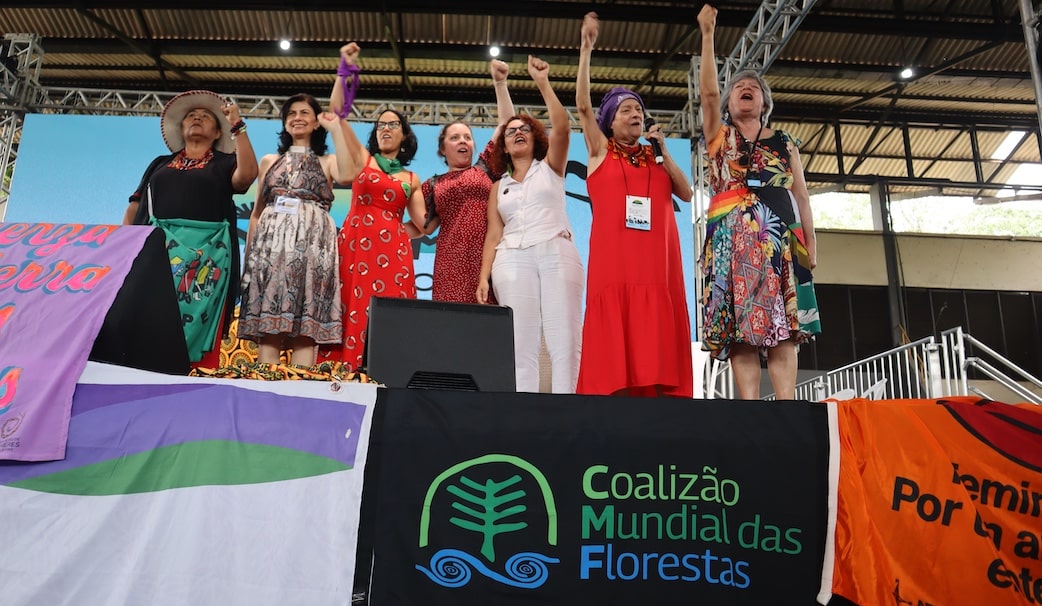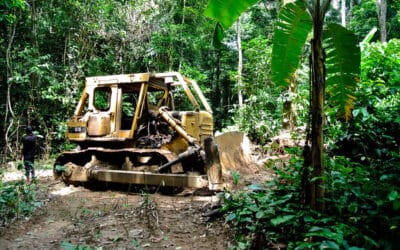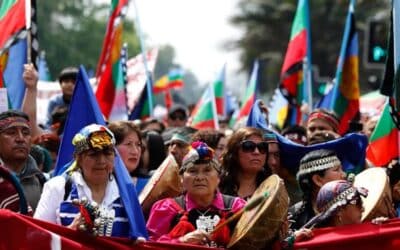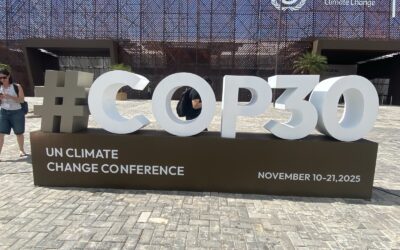By the Brazilian Women’s Alliance (AMB), the Global Forest Coalition (GFC), the International Initiative of Women, Bodies, and Territories, and CP Peru
Plenary Session of Axis 6 of the People’s Summit – Popular Feminisms
Where: Federal University of Pará (UFPA), Sports Gymnasium, R. Augusto Corrêa, 01 – Guamá, Belém.
On November 14th, the International Initiative of Women, Bodies, and Territories, Brazilian Women’s Network (AMB), CP Peru, and the Global Forest Coalition (GFC) convened one of the most powerful moments of the People’s Summit: the plenary session of Axis 6 – Popular Feminisms, which gathered hundreds of women environmental defenders, trans, gender-diverse people and LGBTQ+ leaders in Belem, Brazil, as part of the feminist and gender justice mobilizations during this historic process.
This collective space, called the “House of Resistance for Women and Gender-diverse People,” was a powerful moment to bring visibility to grassroots voices from Indigenous, Black, local and Quilombola women, as well as fisherwomen, young, sex workers, and trans women—comrades who confront environmental racism, extractivism, fundamentalisms, and political violence from their territories.
Together, we had a collective space to talk about false climate solutions and the expansion of green capitalism; the direct impact of hydroelectric dams, mining, and agribusiness on women’s lives; attacks on sexual and reproductive rights; the advance of drought, invasions, and state neglect; and the urgency of including women and gender diversity as protagonists of climate justice.
We also heard profound denunciations from various territories—such as Brazil, Peru and Venezuela—stories of struggle, pain, and resistance.
For us, the House of Resistance was:
✨ A safe space
✨ A territory of healing
✨ A platform of solidarity
✨ A political dwelling place for feminist diversity at COP30
We concluded the meeting with strength, taking the synthesis of our discussions to the group that is building the People’s Summit Charter, which will be delivered to the COP presidency—affirming that our voices matter, our bodies matter, and our territories matter.
We continue, comrades.
We remain powerful.
Without popular feminisms, there is no climate justice!
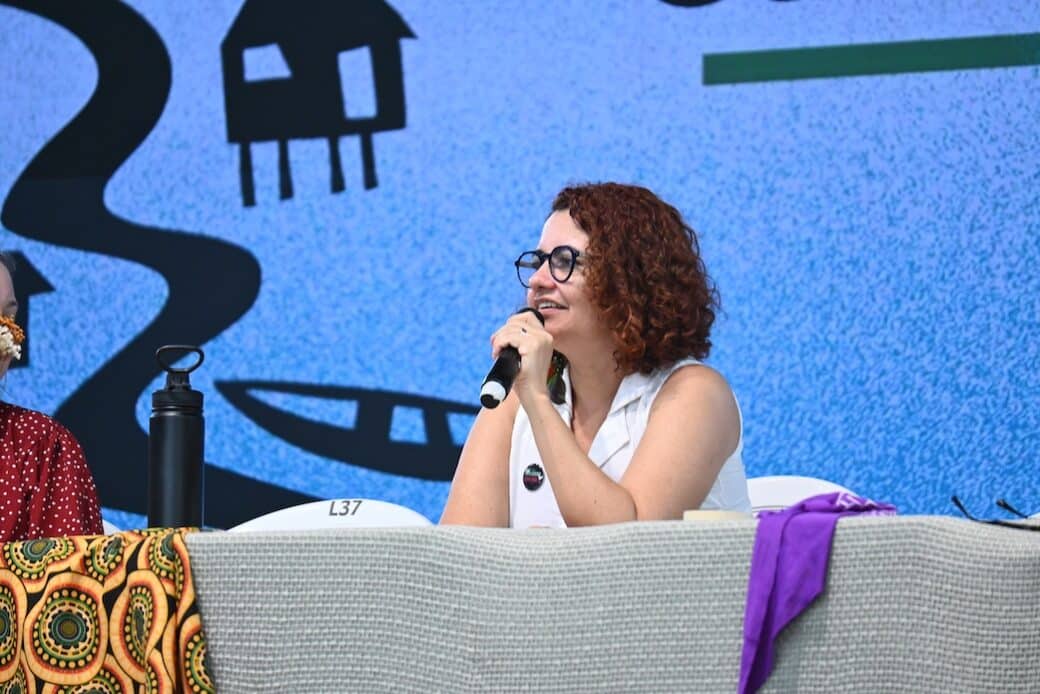
Andrea Camurça, Instituto Terramar Ceará/Brasil e Cúpula dos Povos Nordeste, discusses Just transitions, capitalism, and false solutions: Hydroelectric extractivism, mining, and agribusiness.
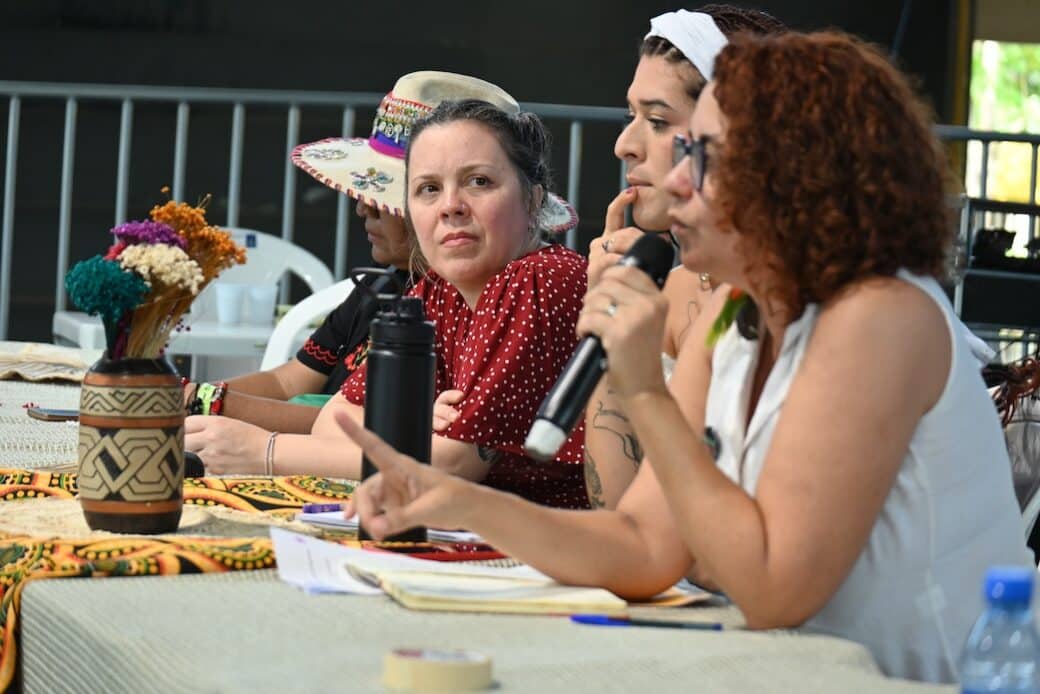
Liliana Buitriago, Plataforma Latinoamérica y del Caribe por la Justicia Climática (PLCJC), Venezuela.
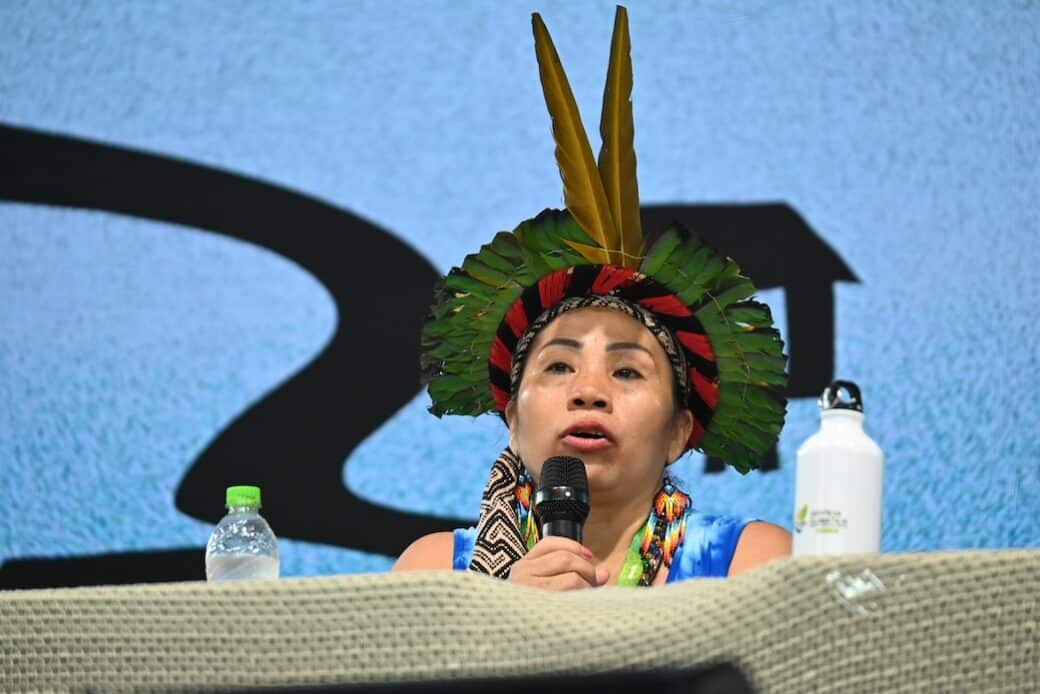
Valdenira Kuni kui, Kuni kui Indigenous People, Brasil presents on democracy, religious and political fundamentalism, and their impact on reproductive and sexual rights.
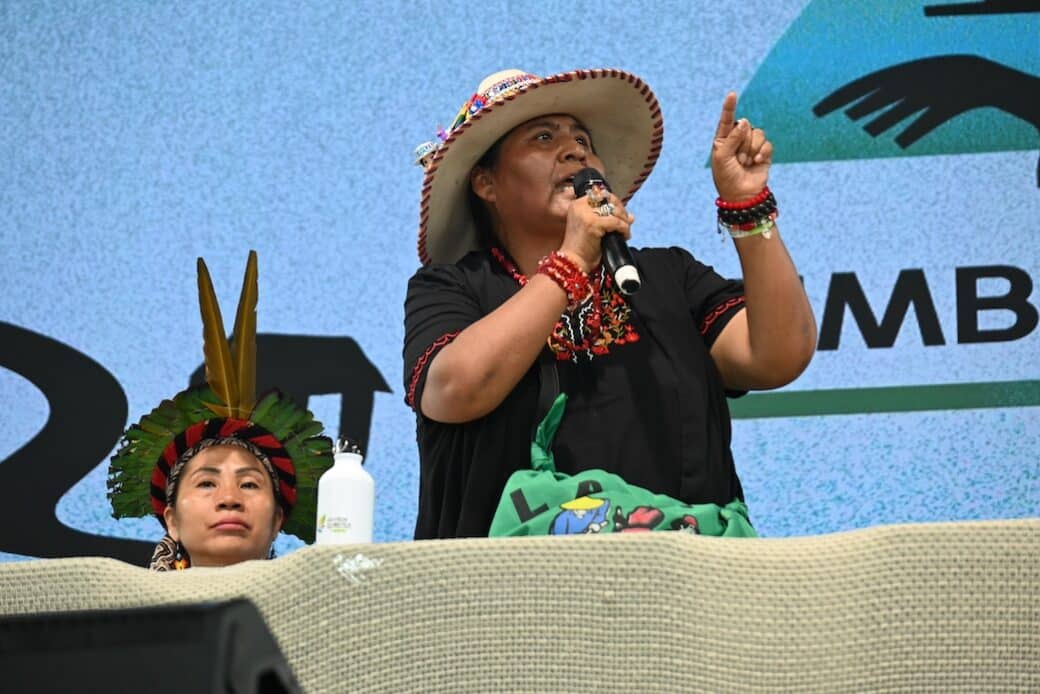
Lourdes Huanca, Vía Campesina, Perú.
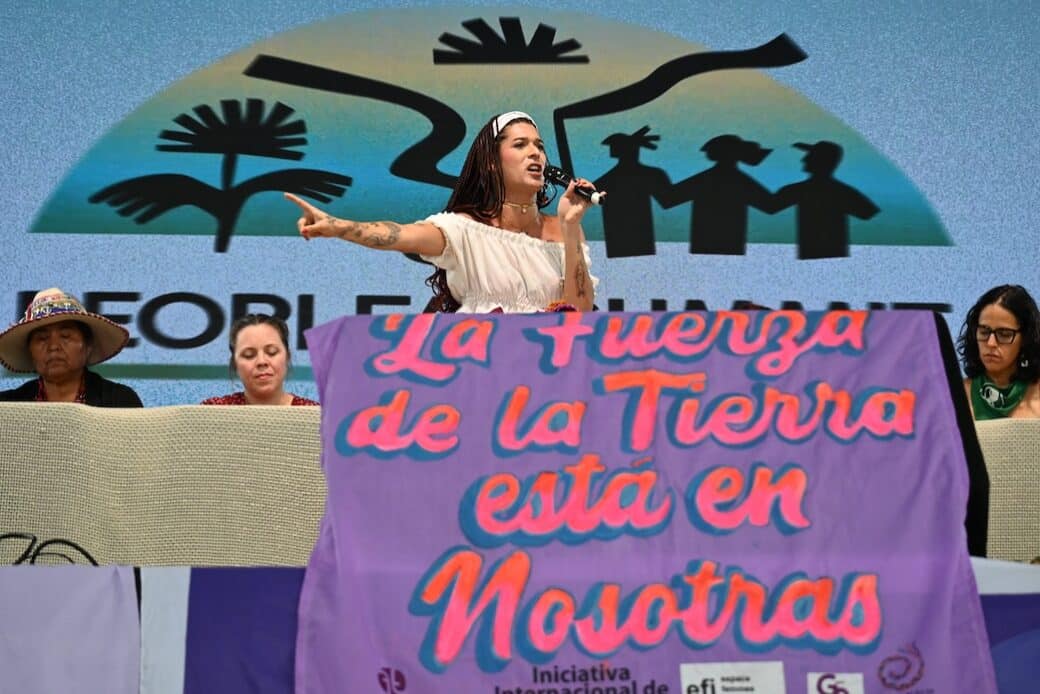
Melissandra, Rede Casa Cura, Brasil talks on Gender, racial, and ethnic diversity: Ecofeminism, sustainability of life and care, feminist economics, and climate change.
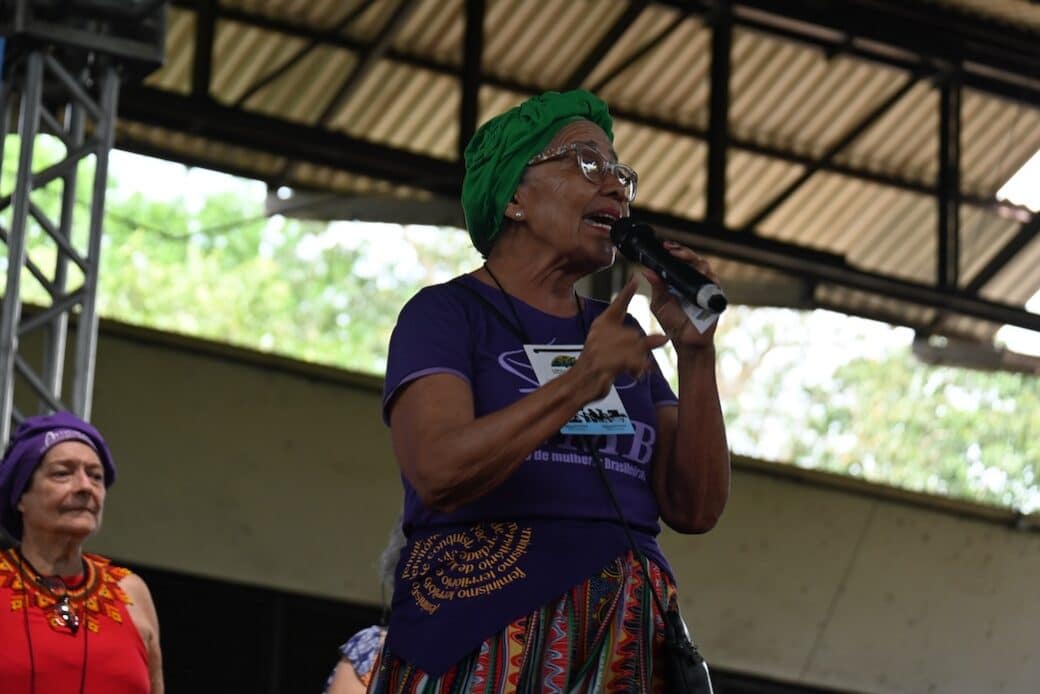
Open mic.

